June 4-5, 2022 Judo Events: Tokon Cup & GKJN Cup Held in Rosemont Dome
June 4-5, 2022 Global Kids Judo Network Tournament Participants
Two back-to-back judo events – the 25th Tokon Cup and the first GKJN Cup – were held on June 4 and 5 at the Rosemont Dome outside Chicago.
The event was co-hosted by Tokon Judo Academy in Chicago, a long-standing judo school that is “rooted in the Japanese community in Chicago,” and Global Kids Judo Network (“GKJN”), a general incorporated association. GKJN was launched in 2020 by judo athlete Megumi Ishikawa, three-time winner of Japan’s Kodokan Cup and a former member of the country’s national team.
The 25th Tokon Cup individual tournament was held on June 4. The inaugural GKJN Cup, a team tournament exclusively for children, followed it on the next day. A total of 320 adults and children competed in the Tokon Cup tournament, separated into 76 categories and in 456 matches in total.
GKJN hosted a judo clinic in the morning of the second day. Ishikawa, alongside U.S. bronze medalist of the London Olympics Marti Malloy, demonstrated judo techniques and talked about judo philosophy. Approximately 200 adults and children participated. The GKJN Cup tournament in the afternoon was a team competition for children. Approximately 150 participants were teamed up on the spot, based on their age, weight and skills. This unique rule allows children from different judo schools to work together as a team, according to Ishikawa. The children were allowed to choose the names of their newly formed teams. It’s part of the goal of working together and accomplishing the first objective.
After the highly heated team matches, winning teams were announced in the medal ceremony. A raffle followed, where prizes were given by the sponsoring individuals and corporations to end the day of fun and excitement. (For the result of the GKJN Cup, see below)
“I think today’s team tournament was even more exciting than yesterday’s individual tournament,” Ishikawa commented after the event. “I was really happy to see children from different dojos making friends and cheering for each other. I believe it was a wonderful experience for them.” Ishikawa is currently based in Chicago and active in judo education for children in the U.S. and beyond. She launched GKJN after she retired as an active judo competitor. Her goal is to spread the Japanese national athletic culture of judo among children in the world and teach its philosophy that seeks “maximum efficiency” and “mutual welfare & benefit.”
GKJN’s activities are designed to contribute to the global society by supporting children’s “sound and healthy development,” according to the website.
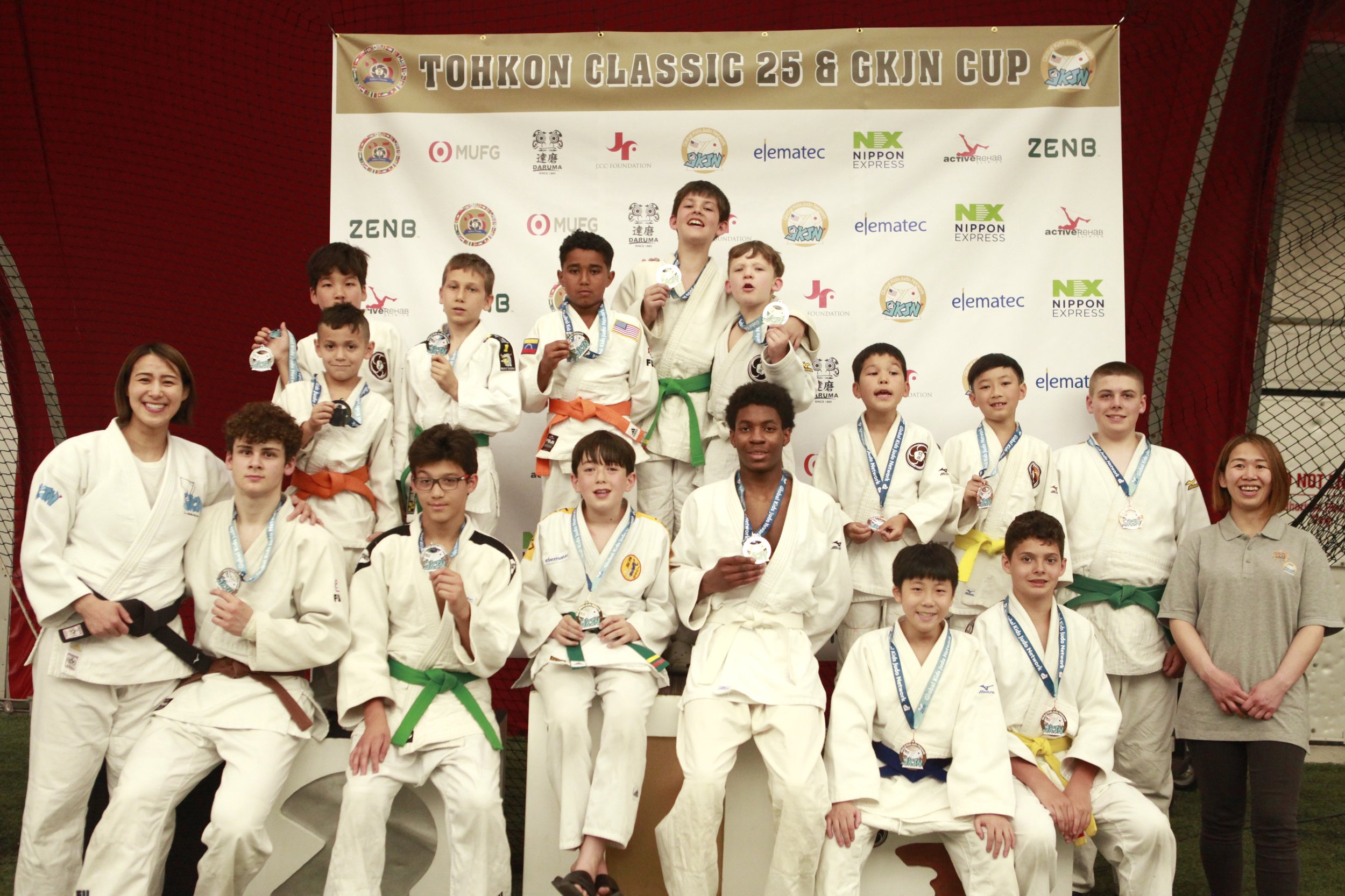
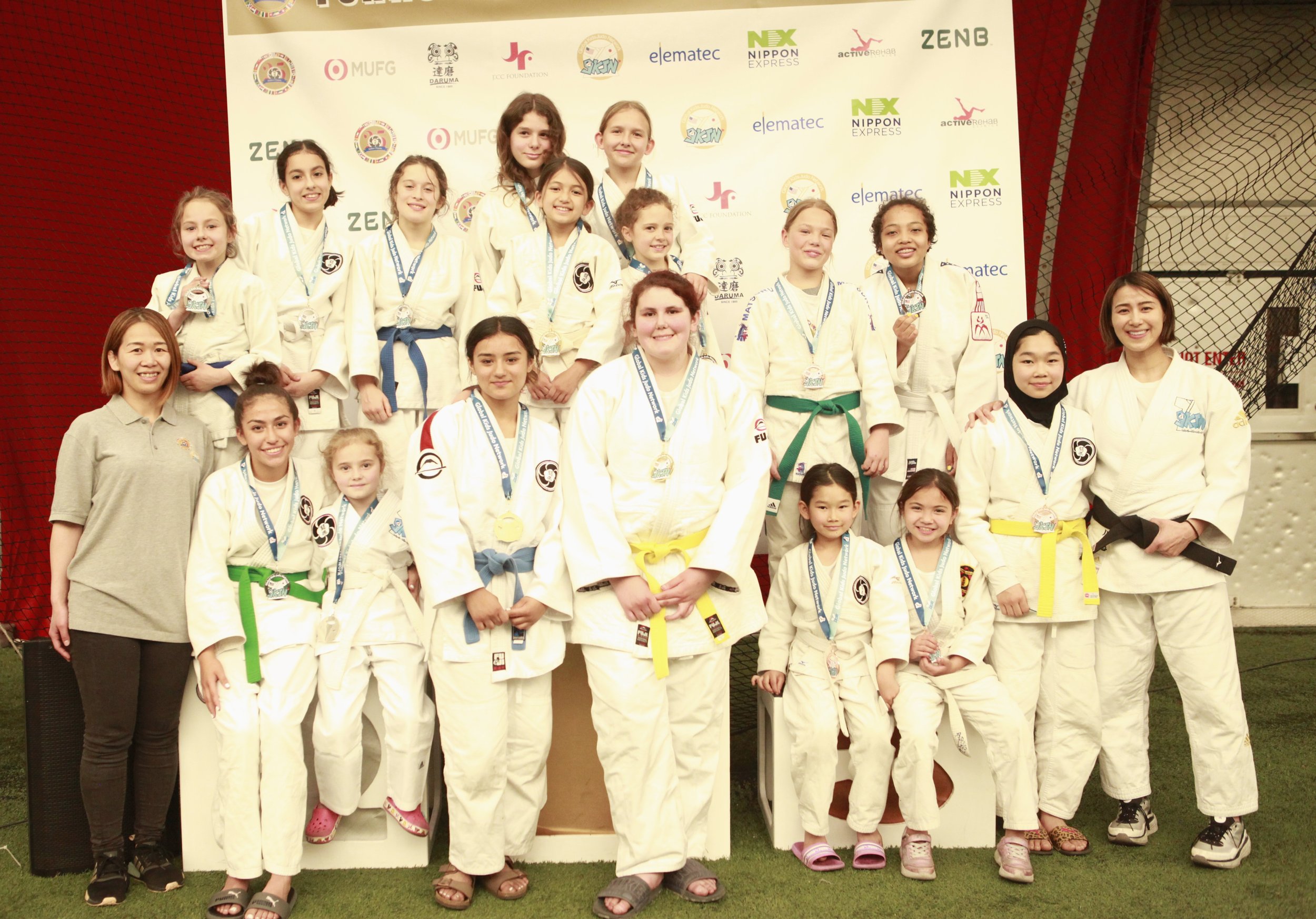
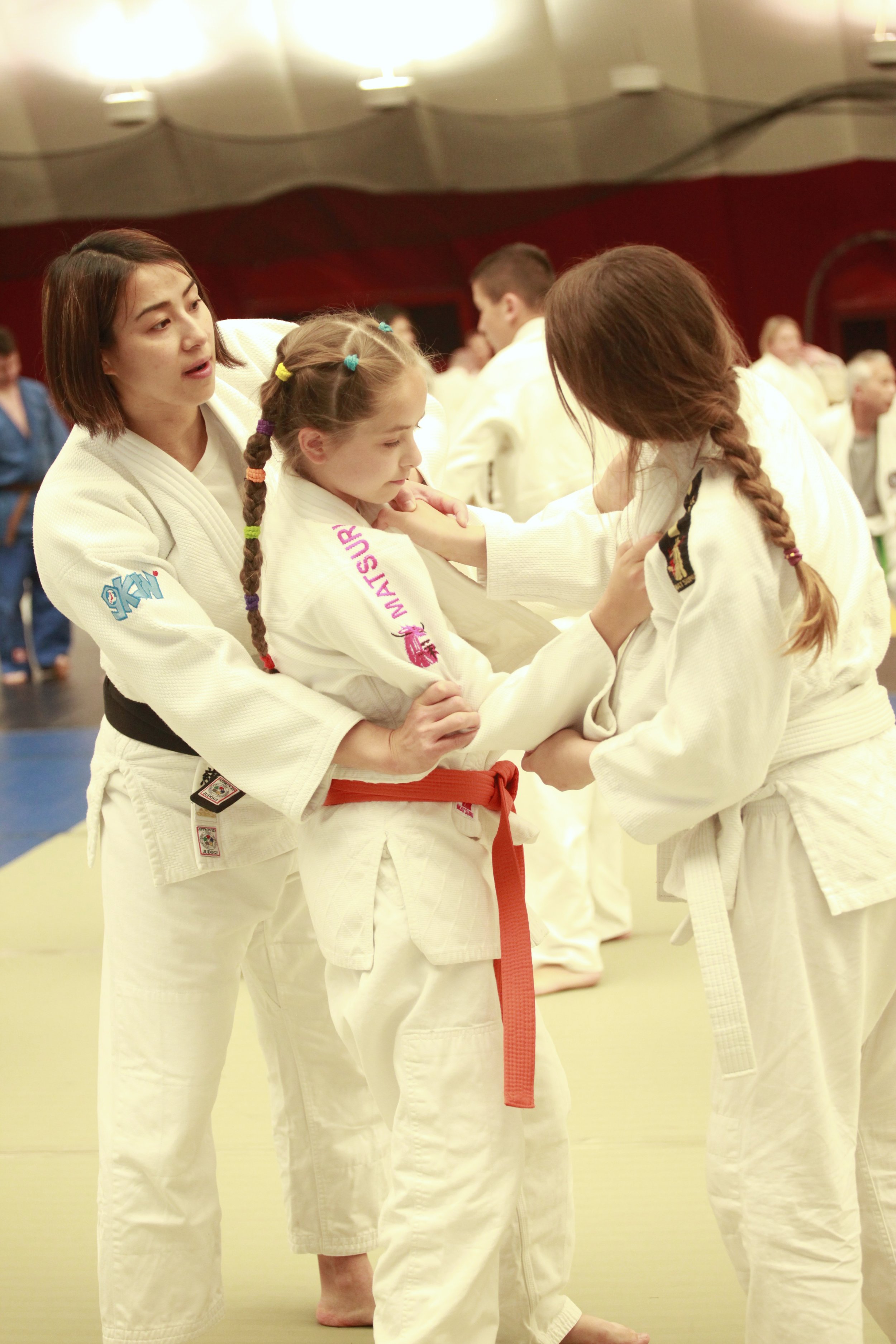
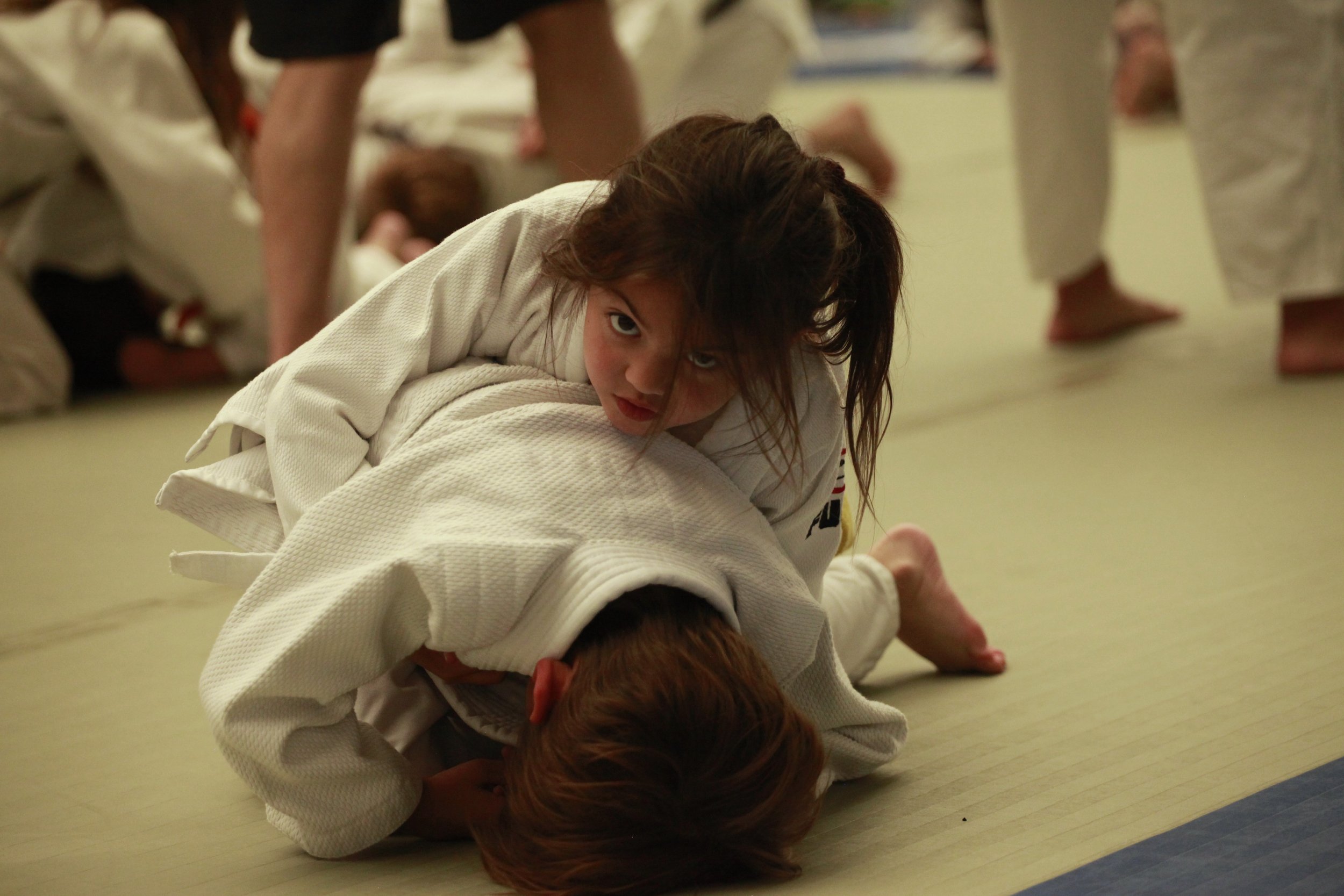
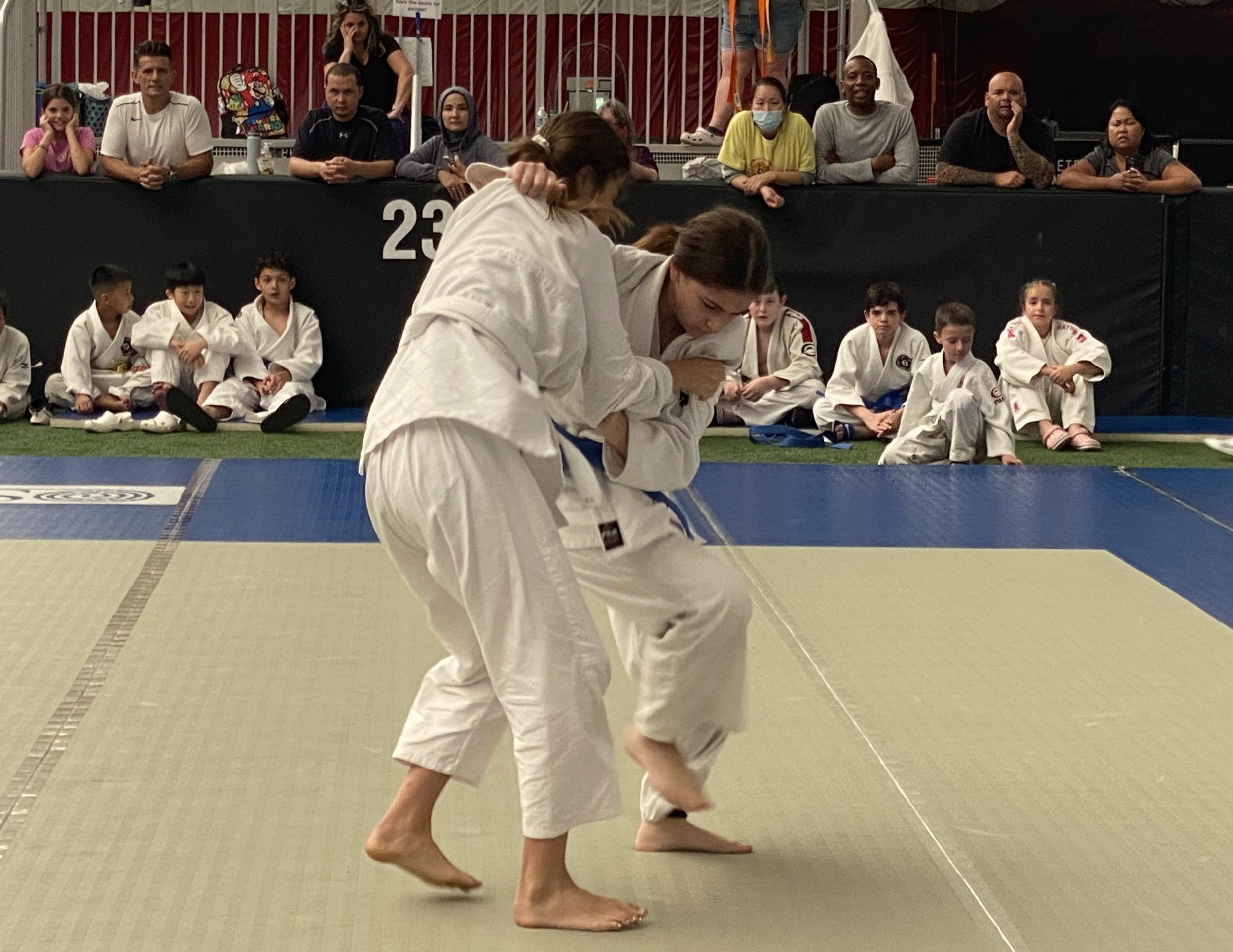
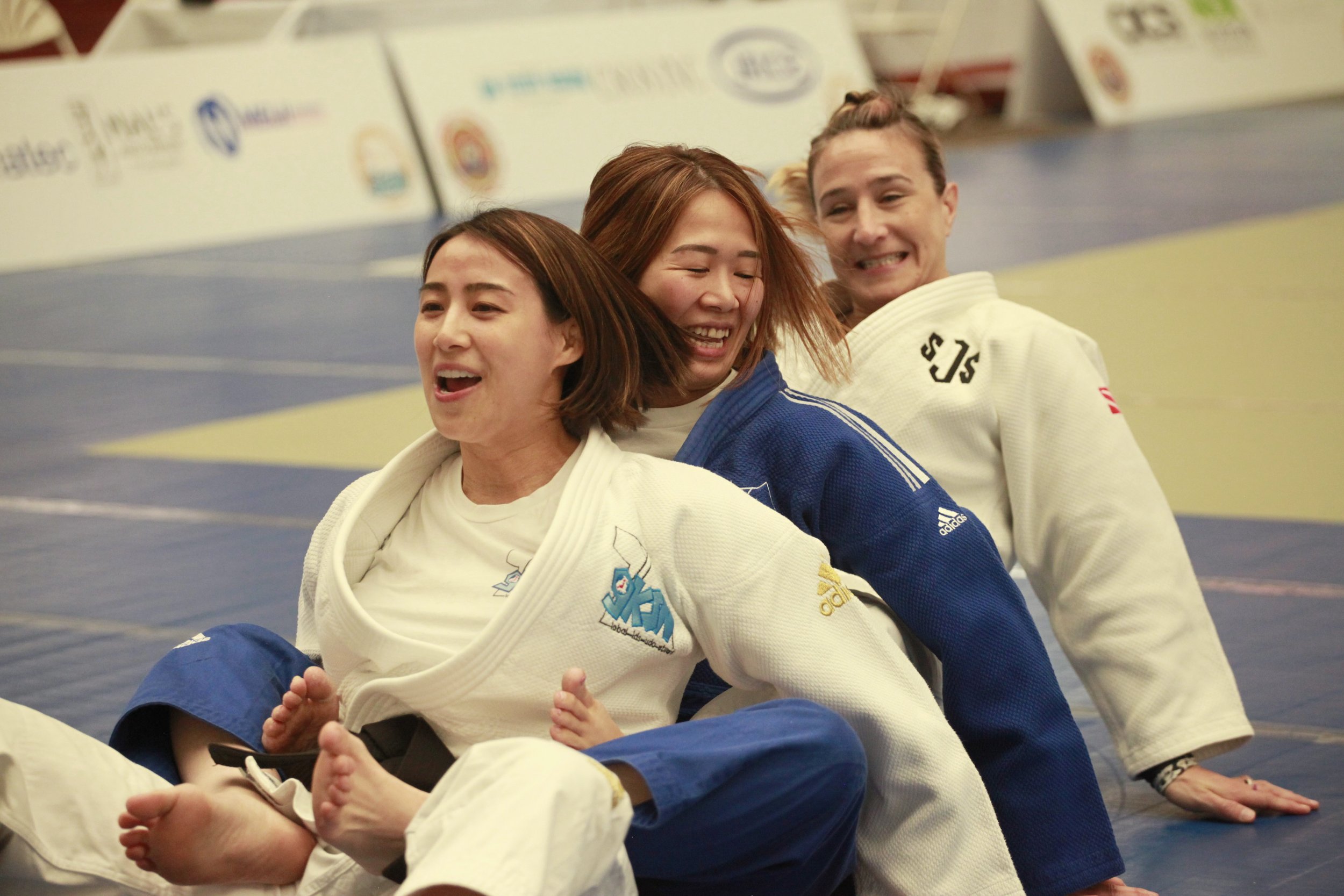
Interview with Megumi Ishikawa
Q: What made you decide to found GKJN?
Ishikawa: I matured [as a person] through judo, through both good and not-so-good experiences. When I thought about paying back my debts [to judo], I thought what I could do was to pass onto our children my experience of learning the judo spirit. What I want for my young students most is to experience through judo something life-changing, like getting to know kids from other teams, rather than focusing on winning. To me, the benefit of basing our activities outside Japan is that it creates opportunities for us to interact with each other beyond national borders. For example, we can take American children to Japan or invite kids from Japan to foreign countries. [This kind of exchanges] are very critical for their healthy development, I believe.
Q: Can you describe how you teach children in your judo clinic?
Ishikawa: I teach them my judo expertise and techniques, of course, but my top priority is let them have fun. So, when 100 to 150 kids show up for a clinic, I get excited – everyone gets excited. That doesn’t happen every day.
It makes me very happy when everyone gets together and works toward one goal. It will remain as an indelible experience in their minds, I hope.
Q: It must be an unforgettable moment for the children to meet you in person, boosting their enthusiasm for Judo even more.
Ishikawa: I hope so. Marti Malloy, my American friend and rival, is a heroine for American judo fans. Meeting and getting taught by such an idol must be a precious experience for them.
Q: What differences have you seen between American kids and their counterparts in Japan?
Ishikawa: American kids express themselves more clearly than Japanese kids.
Kids in the U.S. are pretty direct in expressing themselves, while kids in Japan are “square” in a good sense of the word. They [American kids] express their will in a straightforward manner, so it’s easy to understand what they do and do not want to do. I find it interesting.
Q: So the critical point in your teaching is to motivate them to do it voluntarily, right?
Ishikawa: Yes, I think that’s the most important thing. When I teach at a judo clinic, I pay a lot of attention to motivating and encouraging the children during the warm-up time, so that they can begin learning techniques with positive attitudes and expectations.
Q: What were the major difficulties in launching GKJN?
Ishikawa: When I was actively competing, I singularly concentrated on winning and improving my skills. Now, in my “second life” after retirement, I’ve realized that starting something new takes help and support from a lot of sponsors and supporters. That’s what makes my dreams come true. So I’m very grateful to them.
Going forward, I want to gather more support from those who agree with my goals, so that I can host larger events to provide life-changing experiences to many more children.
Q: What are your life-changing experiences?
Ishikawa: I wasn’t standing out much as a young girl. I won the top position in Japan for the first time when I was 22. After that, I became a member of the national team and began competing in various international competitions. Competing outside Japan opened my eyes to different cultures and value systems. It was an awakening experience to know that Japanese values and rules are not always accepted in other countries. I was stimulated and made strong by that awareness. I believe my views have been broadened by mingling with foreign competitors, by talking with my rivals as friends after the competition. It made me wonder what if I had this type of experience when I was much younger. When I joined the youth judo tournament in Chicago for the first time in 2018, I demonstrated and taught 100 American children, and thought “this is what I wanted to do” very strongly. I belonged the Komatsu team then. It was a beautiful summer in Chicago. I think that helped fix my mind here. That’s how I got “where” and “what.” For now, everything is new and fresh to me. This is my own personal challenge. It’s also a dream shared by my sponsors and supporters.
Q: How did you spend your first winter in Chicago?
Ishikawa: I didn’t step outside much during January because of snow, other than teaching at Tokon Judo Academy four times a week (Tokon dojo is the base of my activities). Most of the time, I stayed in my room, mentally preparing for this summer event. I felt positive about Chicago’s winter, because I love Chicago.
Q: Thank you very much.
Interview with Hideyuki Takatsuki, GKJN Managing Director
Q: You are Managing Director of GKJN. How is it doing so far?
Takatsuki: Our challenge this time was how we can implement the cultural exchange between Japan and the U.S. through judo, while the COVID pandemic is still lingering. In the end, we were able to garner support from 13 organizations/corporations and 70 individuals of the U.S. and Japan, and bring a co-hosted judo event to success.
Q: Tell us about your future plans and schedules.
Takatsuki: Ms. Ishikawa has a broad judo network across the world. In the coming years, we plan to use that network and invite children to the U.S. from other countries like Canada and Japan. It’s part of the effort to achieve our goal, which is to connect the world through promoting judo and its spirit. We also hope to contribute to healthy development of American youth through our activities.
Q: We understand that you have moved to Chicago to live permanently. What made you decide to do that?
Takatsuki: [I was here in Chicago temporarily as an employee of a Japanese company.] To be honest, I wanted to pursue my dream of starting anew outside the life of a company employee. That’s why I came here permanently to support Ms. Ishikawa’s activities.
Q: Thank you very much.
For detailed information about GKJN, visit the website at: www.gkjn.org


